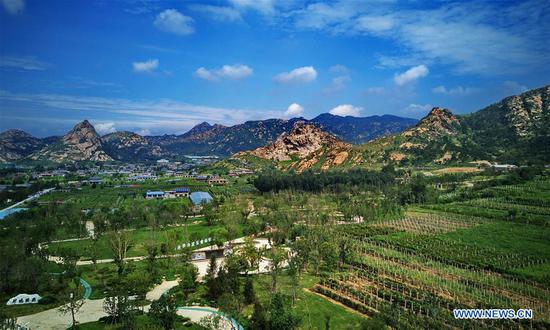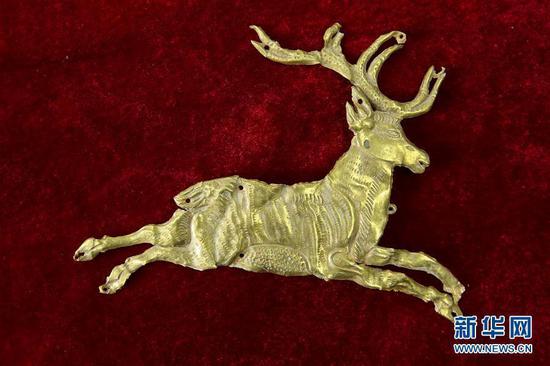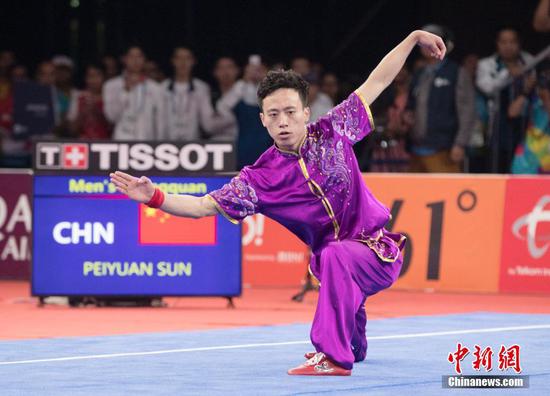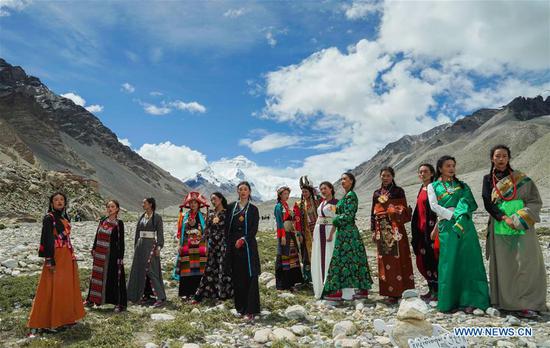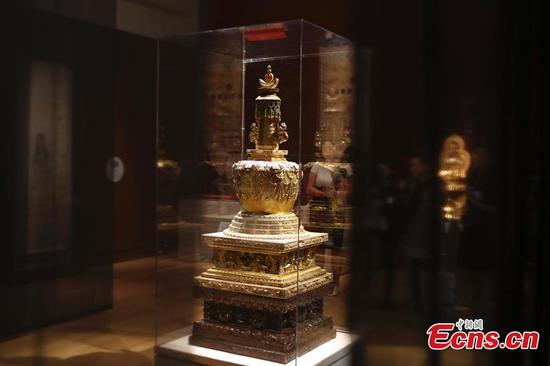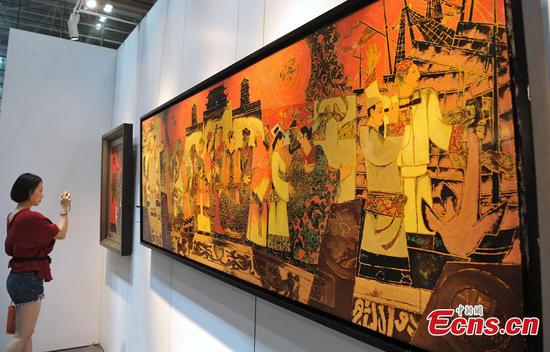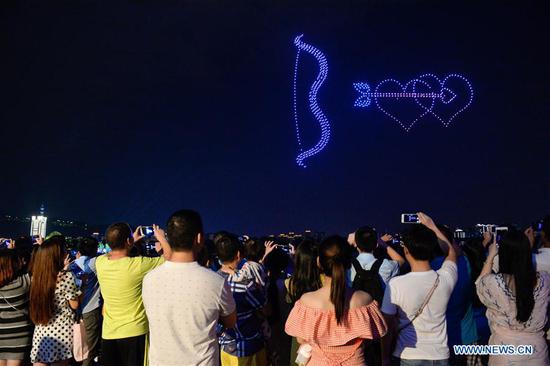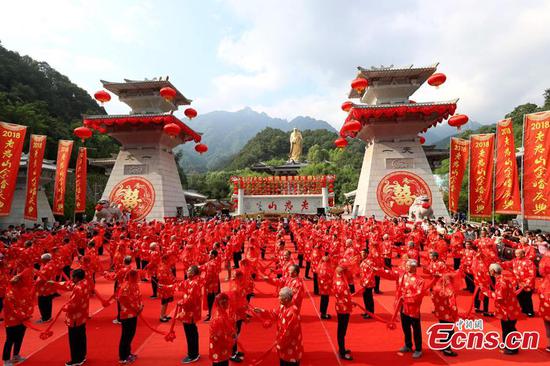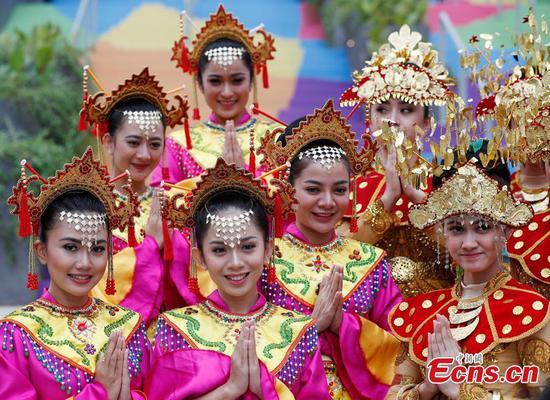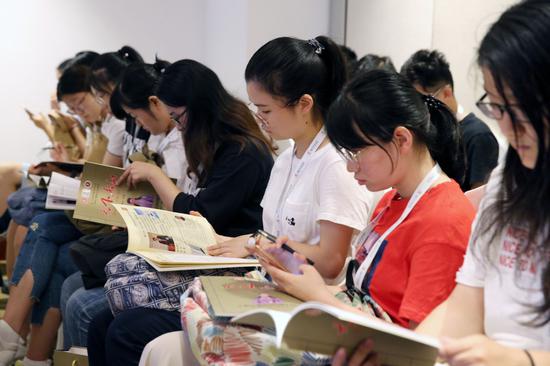
Students listen to a session at the World Congress of Philosophy, which has attracted 8,000 participants. Wang Zhuangfei/China Daily
Chinese insights
The Beijing meeting also has symbolic meaning and practical value in the eyes of many, including the participants, as it provides global philosophical circles with inspiration from China.
Luca Maria Scarantino, secretary-general of the federation, said, "We perceive a growing awareness that what we usually term 'philosophy' is dramatically defective without the intellectual legacy of Chinese philosophy, culture and spirituality.
"Because of its inclusiveness and scholarly influence, this Congress may therefore represent a historical opportunity for reassessing the sense of philosophy, for enhancing the theoretical diversity of philosophical concepts, and for rethinking in widely comprehensive ways the notion of 'being' - or 'becoming' - human."
Mogobe Ramose, a professor of philosophy at the University of South Africa, thinks that the Confucian virtue ren, which denotes the feeling of a virtuous human experience, shares similarities with ubuntu, a term used in Bantu languages to mean humanity, or "the belief in a universal bond of sharing that connects all humanity".
This is because both require us to put ourselves in the place of others and spread love from oneself to others.
Graham Parkes, a professor of philosophy at the University of Vienna in Austria, urged people to care more about living creatures beyond humans.
The thoughts in traditional Chinese philosophy that all exists in qi - believed to be a vital force forming part of any living entity - and that all things form an organic whole are what modern times need most, he said.
The Congress has 99 sections of contributed papers: including one entitled "Chinese philosophy" with four sub-headings: Pre-Qin philosophy (221BC-207BC); Philosophy from the Han (202BC-220) to the Qing (1644-1911); Modern Chinese philosophy; and Contemporary Chinese philosophy; as well as Confucian Philosophy, Buddhist Philosophy and Taoist Philosophy.
There is a new section entitled Contemporary Philosophies in China, in recognition of the fact that not all philosophy in the country is Chinese, and also a separate section on Marxist Philosophy.
Moran added: "Clearly, these new sections are meant to reflect the complexity of the Chinese tradition of philosophy ... . We have much to learn from one another if we open our ears and our hearts and come prepared to have our presuppositions challenged in an atmosphere of friendly and supportive collegiality."
Evolving system
Tu Weiming, a professor of philosophy at Peking University and professor emeritus and senior fellow at the Asia Center at Harvard University, played a key role in China winning the bid to host the conference, over Brazil.
"The first character in The Analects of Confucius is "learning", or xue in Chinese. Learning to be human is a ceaseless process of self-realization," he wrote in an article for China Daily eight years ago. This coincides with the themes of today's Congress - self, community, nature, and spirit and tradition.
Humanity is a notion central to Confucianism. Tu, in advocating New Confucianism, firmly believes the ancient philosophy contains rich resources of wisdom to help deal with present-day problems, and that China's fast development has provided an ideal platform for New Confucianism to unfold.
"The sun of philosophy rose in Greece, but should not set in Greece", he added. Its rays should be able to fall on the whole world, including countries with ancient civilizations, such as those in Asia and Latin America.
In the 1980s, long lines formed outside bookstores in China for the newly published translated works of the German philosopher Martin Heidegger. But nowadays Chinese are taking a more measured approach in their observations of both Western and Chinese philosophy.
This represents a historical turning point from the blind pursuit of Western thought, which dates to the late Qing Dynasty, to more rational attitudes to "others" and "self".
Ding Yun, a professor of philosophy at Fudan University, Shanghai, wrote in a thesis published last year, "The Chinese people now have their own judgment of Western philosophical history as a whole, and they are intent on drawing nutrition from it to nourish modern Chinese philosophy" so as to better reflect and meet the practical needs of Chinese society.
Tu believes that now is the right time for a dialogue among civilizations that focuses on the core values necessary for human survival and progress.
"Civilizations do not clash. Only ignorance does. The danger of shared vulnerability as well as the hope of shared aspiration impels us to move beyond unilateralism in order to work toward a dialogical civilization," Tu said.
In the age of reason, when the Enlightenment movement began to shape the Western mindset, leading thinkers such as Gottfried Wilhelm Leibniz (1646-1716), Voltaire (1694-1778) and Jean-Jacques Rousseau (1712-78), took China as an important reference country and Confucianism as a significant reference culture.
Tu said that with an eye on the future, it is likely that the spirit of East Asian modernity imbued with Confucian characteristics will serve as a reference point for public intellectuals in North America and Western Europe as well as for intellectuals elsewhere in the world.














